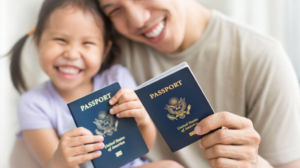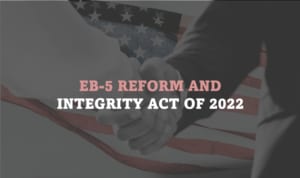One way immigrant visa applicants may be eligible for a waiver of a refused immigrant visa is to file a Form I-601 Waiver of Inadmissibility through the U.S. Citizenship and Immigration Services (“USCIS”) and demonstrate that they have a qualifying U.S. relative (spouse or child) and who would suffer “extreme hardship” if the applicant would be prevented from immigrating to the United States.
The term extreme hardship is not defined by statute or regulation but rather is determined subjectively by examining several different factors focused on the qualifying U.S. relative. Some of the factors that may be considered include but are not limited the following:
- Quality of life in the immigrant visa applicant’s home country if the qualifying U.S. citizen would be required to relocate due to the immigrant visa applicant being unable to immigrate;
- If the qualifying U.S. citizen has children, educational opportunities if the children would be required to relocate to the immigrant visa applicant’s home country;
- Psychological impact such as depression as a result of family separation;
- Health considerations for the qualifying U.S. relative, such as inadequate medical facilities or limited treatment options in the immigrant visa applicant’s home country.
In addition to some of the factors mentioned above, USCIS has identified specific factors that will be considered when evaluating whether a showing of extreme hardship has been established:
- Financial considerations. This includes the inability for the qualifying U.S. relative to secure employment abroad, the decline of an accustomed standard of living, losses incurred due to a sale of a home or business, or the increased cost of medical care for family members who may be required to relocate with the qualifying U.S. relative abroad.
- Educational considerations. This includes loss of higher educational opportunities for minor dependents should the children relocate with the qualifying U.S. relative as well as a disruption in the quality of education that the children are receiving in the United States. The USCIS will also look at foreign languages spoken in the country that the qualifying U.S. relative would relocate to and the degree of difficulty of dependent children to learn the language.
- Health considerations. This includes existing or ongoing treatment for the qualifying U.S. relative whether such treatment is available abroad. Costs associated with such treatment should be viewed under financial considerations.
- Personal considerations. This includes the qualifying U.S. relative’s ties to the U.S. as well as the ties of any dependent children and other family members who may be required to relocate abroad.
- Special factors. This includes language, cultural and religious differences in addition to valid fears of persecution, physical harm or social stigma that the qualifying U.S. relative may suffer if required to relocate abroad.
Proving extreme hardship often requires the skills and knowledge of an experienced immigration attorney. For more information, contact us today at info@enterlinepartners.com and speak with a U.S. immigration attorney in Ho Chi Minh City, Manila and Taipei.
ENTERLINE & PARTNERS CONSULTING
Ho Chi Minh City, Vietnam Office
Suite 601, 6th Floor, Saigon Tower
29 Le Duan Street
Ben Nghe Ward, District 1
Ho Chi Minh City, Vietnam
Tel: +84 933 301 488
Email: info@enterlinepartners.com
Facebook: Enterline & Partners – Dịch vụ Thị thực và Định cư Hoa Kỳ
Website: http://enterlinepartners.com
Manila, Philippines Office
Tel: +632 5310 1491
Email: info@enterlinepartners.com
Facebook: Enterline and Partners Philippines
Website: https://enterlinepartners.com/language/en/welcome/
Copyright 2022. This article is for information purposes only and does not constitute legal advice. This article may be changed with or without notice. The opinions expressed in this article are those of Enterline and Partners only.








